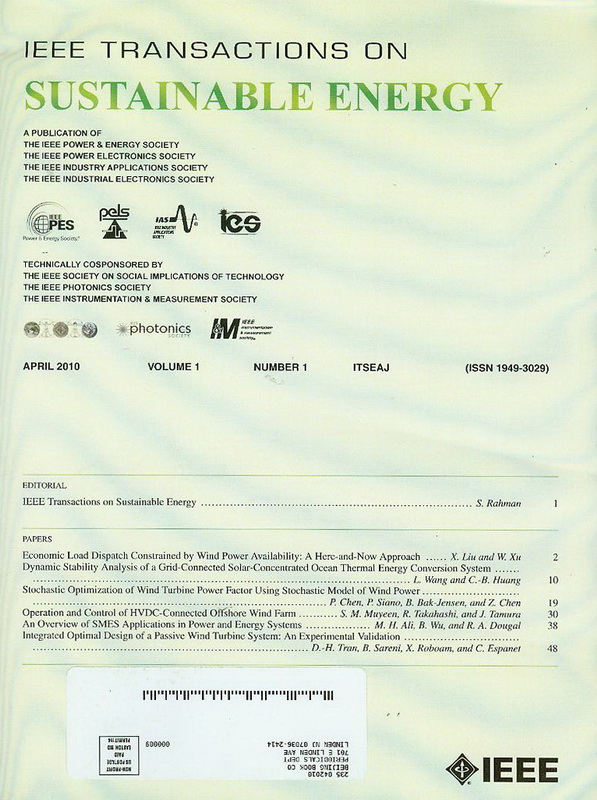Stability Region Estimation and Decentralized Transient Control for Parallel Grid-Tied Grid-Forming Inverters
IF 10
1区 工程技术
Q1 ENERGY & FUELS
引用次数: 0
Abstract
Renewable energyes are highly penetrated in power system through Grid-forming inverter (GFMI). Transient stability of single GFMI system under severe grid fault has been thoroughly analyzed in recent years, but quantitative analysis for parallel grid-tied GFMI system is rarely studied. To fill this gap, the large signal equivalent model of parallel system considering the interaction between inverters is newly built. Based on the model, the Lyapunov function incorporating kinetic energy, potential energy, damping dissipation, and interaction energy is constructed for accurate stability region estimation. Then, the effect of control parameters on stability region is analyzed, indicating that increasing damping, reducing inertia, and lowering reference power of one GFMI can deteriorate stability margin of parallel GFMI system due to the enlarged interaction power, which is distinct from single GFMI system. For this, a decentralized transient control that adaptively adjusts damping, inertia, and reference power is proposed to guarantee transient stability and achieve low-voltage ride-through (LVRT) for parallel system without relying on communication, system information. Finally, simulation and experimental tests validate the correctness of theoretical analysis and the effectiveness of proposed control.并网并网逆变器稳定域估计与分散暂态控制
可再生能源通过并网逆变器(GFMI)在电力系统中得到高度渗透。近年来,人们对电网严重故障下单个GFMI系统的暂态稳定性进行了深入的分析,但对并联并网GFMI系统的定量分析却很少。为了填补这一空白,本文建立了考虑逆变器间相互作用的并联系统大信号等效模型。在此基础上,构造了包含动能、势能、阻尼耗散和相互作用能的Lyapunov函数,实现了稳定区域的精确估计。分析了控制参数对稳定区域的影响,表明增大阻尼、减小惯性、降低参考功率会使并联GFMI系统的稳定裕度变差,这与单GFMI系统不同。为此,提出了一种分散暂态控制方法,可自适应调节阻尼、惯量和参考功率,以保证暂态稳定性,并在不依赖通信、系统信息的情况下实现并联系统的低压通过(LVRT)。最后,通过仿真和实验验证了理论分析的正确性和所提控制的有效性。
本文章由计算机程序翻译,如有差异,请以英文原文为准。
求助全文
约1分钟内获得全文
求助全文
来源期刊

IEEE Transactions on Sustainable Energy
ENERGY & FUELS-ENGINEERING, ELECTRICAL & ELECTRONIC
CiteScore
21.40
自引率
5.70%
发文量
215
审稿时长
5 months
期刊介绍:
The IEEE Transactions on Sustainable Energy serves as a pivotal platform for sharing groundbreaking research findings on sustainable energy systems, with a focus on their seamless integration into power transmission and/or distribution grids. The journal showcases original research spanning the design, implementation, grid-integration, and control of sustainable energy technologies and systems. Additionally, the Transactions warmly welcomes manuscripts addressing the design, implementation, and evaluation of power systems influenced by sustainable energy systems and devices.
 求助内容:
求助内容: 应助结果提醒方式:
应助结果提醒方式:


